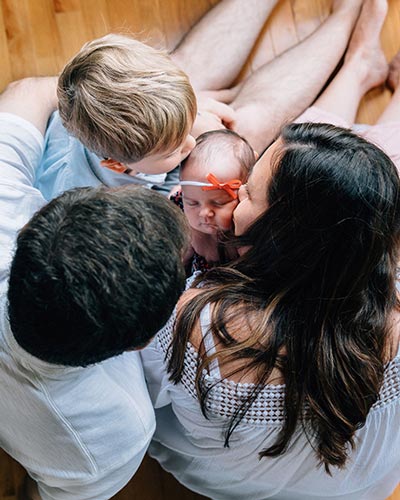A Look At Open Adoption For Prospective Adopters

by: Lois Melina
If you are just starting to think about adoption, the prospect of meeting your child’s birth parents and perhaps staying in contact with them as your child grows up may seem strange, frightening, or just one more hoop you are expected to jump through in the arduous process of becoming a family.
You are not alone in feeling that way. Yet for both practical and philosophical reasons, open adoption, in which the birth and adoptive families have ongoing contact with each other, is an idea you should explore and become more comfortable with.
You are probably aware of the practical reasons. Many birth parents will only consider placing their children with adoptive parents who agree to send them letters or photographs, or allow occasional phone calls or visits. But adoptive parents should not agree to open adoptions if they just view it as a way to get a baby. Before entering into open adoptions, adoptive parents need to believe that there are not only practical reasons to do so, but real benefits for their child.
To understand the benefits of open adoption it is first necessary to understand the history of confidential adoption and its limits. Confidential adoptions began in the early 1900’s as a way to protect birth mothers and adoptees from unforgiving public attitudes toward them. Sealed adoption records kept birth parents and adoptees from suddenly appearing in each other’s lives to reveal the truth.
As society’s attitudes changed, the fact that a child was adopted became common knowledge in the community. Birth parents stayed in their communities through their pregnancies. The original need to keep the birth parents away from the adoptee so that the secret of his origin would not be revealed became unnecessary.
At the same time, we began to learn more about what it was like for children to grow up having been cut off from their origins. We learned this was a significant loss unrelated to how much adoptees loved their parents. We learned that children sometimes felt abandoned, unwanted, and rejected by their birth parents; that it was more difficult for them to form a personal identity when they had little information about their genetic origins; and that adoptees developed fantasies – sometimes troubling ones – to fill in the missing pieces in their personal histories.
Search for Birth Family or Adoptee
Although many adoptees in confidential adoptions worked through these challenges successfully, some people began to wonder if it was necessary to put adoptees through them when the original reason for keeping adoptions confidential was no longer valid. Open adoptions have developed as a result.
It would be a mistake to suggest that open adoptions are a cure-all for the deficiencies of confidential adoptions. Open adoptions provide adoptees with the opportunity to know they are loved and valued by the people who gave them life. But there is nothing about exchanging names, addresses, or telephone numbers that will guarantee this. Only a relationship can accomplish this. For open adoption to be effective, both the adoptive and birth family have to understand that the primary reason for it is for the child. This means that even when the relationship is difficult, each person makes an effort to work through the problems.
Open adoption will complicate your life the way relationships often do. And it’s true that people who give birth rather than adopting do not have this particular complication. But that doesn’t justify avoiding or discarding it. When we adopt, we not only sign up for a different way of forming a family, but we sign up for a different way of being a family. Our children have unique needs that non-adopted children do not have and we must make a commitment to doing whatever is necessary to meet those needs.
Often adoptive parents find that when they are committed to that goal, open adoptions provide rich opportunities for joy and growth – as relationships often do.
The open adoption relationship is like the relationship we have with our in-laws. They may not share our lifestyle or political views. They may even be exasperating. But we make the effort to build a relationship with them because we have in common the love of a single person. Your spouse is connected to his or her family regardless of whether you like them or not. They fill a part of his or her life that you can never fill. They have a connection whether you acknowledge it or not. And it would be an unnecessary loss for your spouse to have to give up one of you to gain the other.
